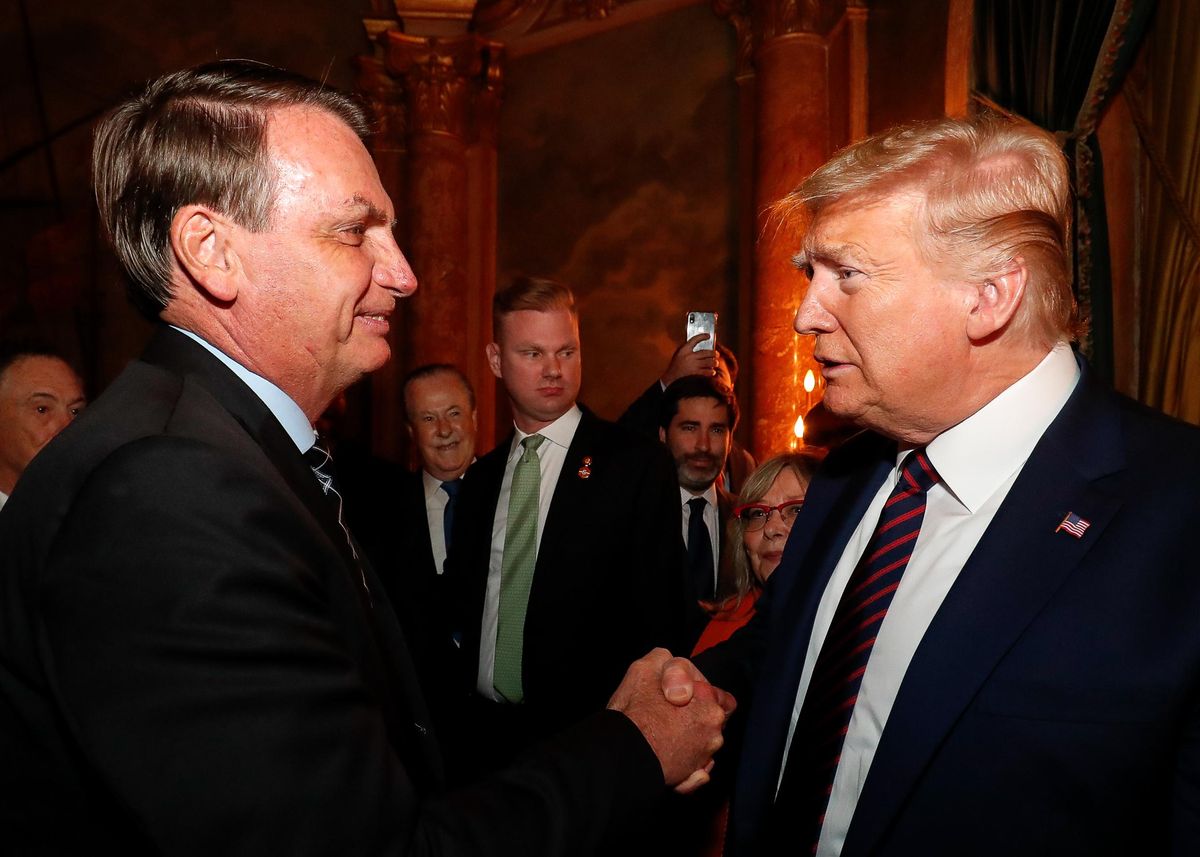Bolsonaro takes off, Lula takes charge
On Sunday, left-wing former president Luiz "Lula” Inacio da Silva will once again be sworn in as Brazil’s president, a post he last held from 2003 to 2010. Hundreds of dignitaries will attend the ceremony in Brasilia, save for one very important person: Brazil’s outgoing President Jair Bolsonaro. The right-wing incumbent will be spending New Year’s Eve in Florida with someone who loves him — former US President Donald Trump. What signal does this send? Bolsonaro has suggested that the bitterly fought election against his nemesis Lula was unfair, and he has done little to stop his supporters from protesting to that effect, sometimes violently. Will his decision to skip the festivities quell concerns about a possible January 6 event in Brazil, or will his supporters read his decision to watch from Mar-a-Lago as a signal that the entire inauguration is illegitimate, fueling more anger as Lula takes power? Ever since the election, Bolsonaro and his team have been in close touch with Trump about next steps. On Sunday, we’ll be watching Lula, of course, but we’ll also be watching Bolsonaro’s supporters watching him watching Trump.
Putin tries again to freeze Ukraine over
Russia launched a huge attack on Ukraine’s energy infrastructure Friday, using cruise missiles and drones to target power stations and other facilities across the country. Although Ukraine said it had managed to shoot down most of the Kremlin’s missiles, a number of facilities still suffered damage. Just days before the New Year’s holiday, Putin is intensifying his strategy of trying to freeze Ukraine into submission (see our recent interview with an undaunted young woman in Kyiv). Meanwhile, to Ukraine’s north, Belarus said it had shot down a Ukrainian air-defense missile that had strayed across the border. Belarusian authorities gave no indication that they considered it an attack on their territory. As Ukraine remains under aerial attack, this is the second time in the past six weeks that a Ukrainian air defense missile has strayed — in mid-November one landed in a Polish border town, killing several people and briefly stoking (unfounded) fears that Russia had deliberately targeted a NATO member.
Vietnam’s GDP boom
While many countries are experiencing growing pains, Vietnam’s gross domestic product rose by 8.02% in 2022, the fastest growth rate in Asia. This was in large part due to a strong performance in the final quarter of the year. For context, GDP growth in China, Japan, and Thailand this year is slated to hit 3%, 1.7%, and 3.2% respectively. While China’s manufacturing capacity was hindered by Beijing’s relentless zero-COVID policy, Vietnam's manufacturing juggernaut has expanded, growing by more than 8.1% year-on-year. Still, as global inflation remains high and fear of recession looms, there are already signs that Vietnam’s export-reliant economy could face tougher times in 2023. While global exports are up in 2022, demand is likely to slump next year as a result of central banks’ belt-tightening. Asian economies, particularly in southeast Asia, have benefited greatly from ongoing tensions between the US and China, with both major economies boosting trade with this bloc since 2018 when the tit-for-tat trade war began.







